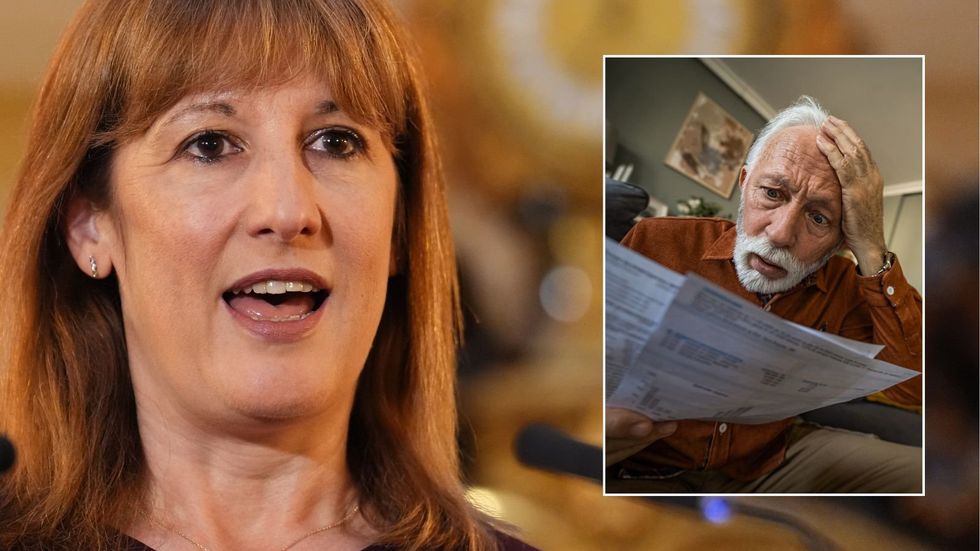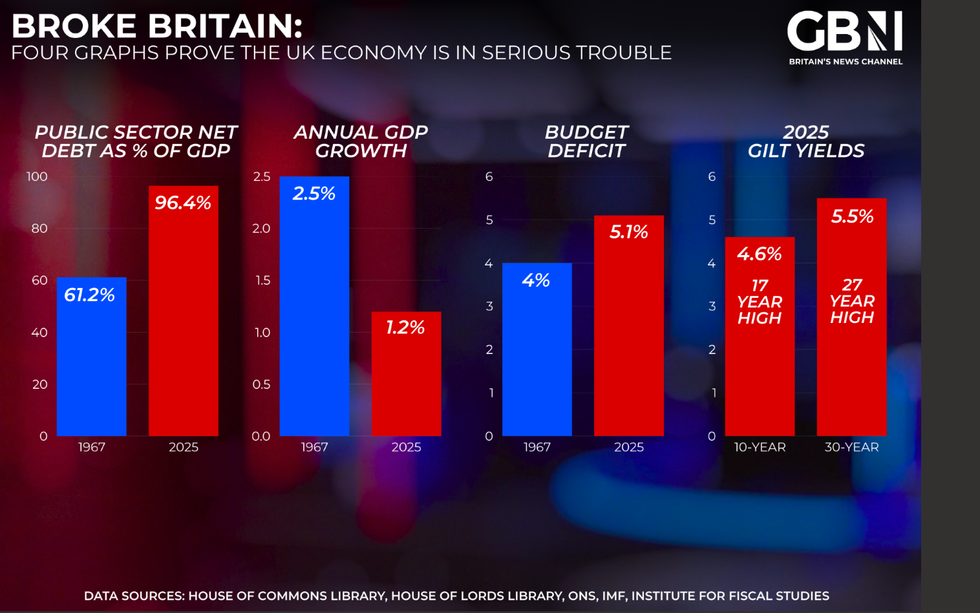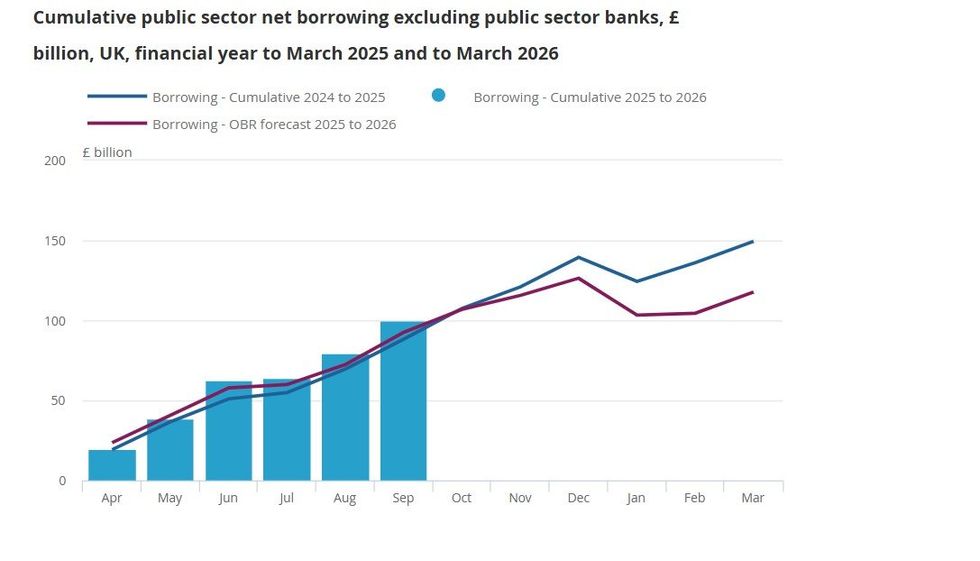Chancellor Rachel Reeves has hinted tax rises has hinted tax rises and spending cuts may feature in the upcoming Budget, marking a potential shift from Labour’s Government election promises.
During an appearance at Fortune Magazine’s global forum in Riyadh, Ms Reeves acknowledged the options on the table for the Treasury in their efforts to plug the estimated £22billion “black hole” in the public finances..
Her comments come despite Labour’s manifesto pledge to avoid increases to income tax, national insurance contributions or VAT.
The Chancellor emphasised the need to maintain “sufficient headroom” in government finances and ensure adherence to fiscal rules.

Speaking in Saudi Arabia earlier today, Ms Reeves declined to exclude the possibility of tax increases when directly questioned about Budget preparations.
“The underpinning for economic growth is stability, and I’m not going to break the fiscal rules that we’ve set,” the Chancellor stated when pressed about potential tax changes.
She confirmed that officials are examining “tax and spending to ensure that we both have resilience against future shocks by ensuring we’ve got sufficient headroom, and also just ensuring that those fiscal rules are adhered to”.
Ms Reeves highlighted that economic expansion would form a significant element of the Budget narrative, describing growth as having been “neglected as a tool of fiscal policy in the last few years”.

The Chancellor maintained that boosting economic activity represents an alternative method for strengthening the nation’s fiscal position.
Financial experts calculate that Reeves must identify £22billion through either revenue increases or expenditure reductions to satisfy her self-imposed fiscal targets, according to the Institute for Fiscal Studies (IFS).
The Chancellor had previously maintained that Labour’s manifesto pledge “stands” when challenged about addressing the fiscal shortfall in November.
However, when questioned recently about potential income tax adjustments being explored by the Treasury, Ms Reeves stated she would “continue to support working people by keeping their taxes as low as possible”.
She acknowledged that officials were still “going through the process” of formulating the Budget, suggesting decisions remain under consideration.
The Chancellor arrived late to the Riyadh conference due to “really good meetings” regarding a potential agreement with the Gulf Co-operation Council.
She expressed optimism about completing negotiations, stating: “And yes, I am confident that we can get that deal over the line.”
Treasury projections suggest the GCC agreement could boost Britain’s economy by £1.6 billion whilst adding £600 million annually to workers’ wages over time.
LATEST DEVELOPMENTS:
- MONEY POLL: Should the windfall tax on North Sea oil and gas be scrapped? Vote now
- Rachel Reeves set to wage war on middle class with ‘dangerous’ new tax – Could you be impacted?
- Rachel Reeves considers income tax rise – here’s exactly how much more you could pay

Addressing concerns about wealthy individuals departing Britain, Reeves defended the Government’s stance.
“Everybody knows that countries around the world are having to spend more on defence that we need to rebuild our public finances and our public services, and everyone who makes Britain their home should contribute to that,” she said.
John Wyn-Evans, the head of Market Analysis at Rathbones, previously said: “When we factor in the probable downgrade to long-term growth estimates from the Office for Budget Responsibility (OBR) which will inform the Chancellor Rachel Reeves‘s Budget decision-making, it looks as though taxes will need to rise somewhere in the order of £25billion or more.
“Much as many would like that number to be lowered by spending cuts, the mood within the Labour Party does not appear to support much hope on that front.”
Our Standards: The GB News Editorial Charter







Follow